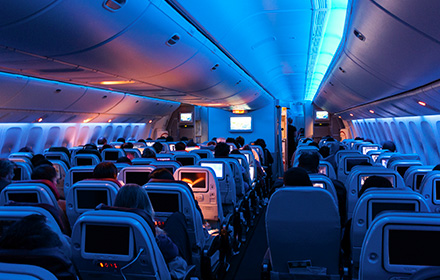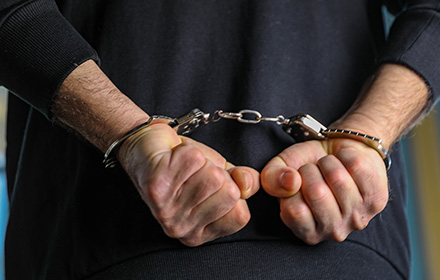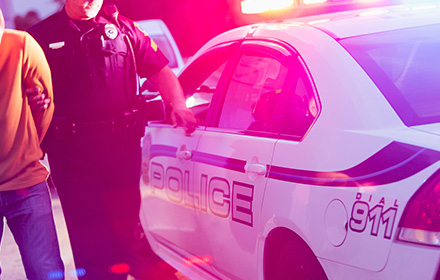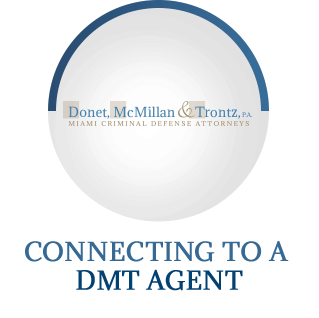Legal Consequences of Drug Trafficking: Learn from Experienced Criminal Defense Lawyers
March 10, 2019
One of the most common questions the
Miami criminal defense lawyers at Donet, McMillan & Trontz get asked by clients is, "How can the police arrest me for trafficking if I did not sell anything and had no money on me?" The answer to that question is easy. For the State of Florida to prove the offense of trafficking of any controlled substance, they must prove the defendant 1) knowingly possessed, sold, purchased, manufactured, or delivered a controlled substance; 2) the substance was a controlled substance; 3) the controlled substance weighed a certain amount. The amount required to sustain a traffic charge depends on the controlled substance. For example, trafficking in cocaine requires a minimum amount of 28 grams or more. As one can see, the mere possession of 28 or more grams of cocaine will be charged as trafficking. All trafficking cases carry various minimum/mandatory sentences, again depending on the controlled substance charged by the government. Florida Statute 893.135 sets forth all of the minimum/mandatory sentence, dependent on the controlled substances alleged to have been trafficked. This is where the Miami criminal defense lawyers at DMT can be of assistance, helping our clients determine where they stand legally in relation to the amount of possession they have been charged with.

One of the harshest trafficking minimum/mandatory penalties applies to the "trafficking of oxycodone," which includes morphine, opium, oxycodone, hydrocodone, codeine, hydromorphone, or any salt, derivative, isomer of heroine. If a person or persons is in actual or constructive control of 7 to 14 grams, a 3 year minimum/mandatory sentence and $50,000 fine applies; if in possession of 14 to 25 grams, a minimum/mandatory sentence of 7 years applies; if in possession of 25 to 100 grams, a 15 year minimum/mandatory sentence applies. if in possession of more than 100 grams, a 25 year minimum/mandatory applies. The guidelines of these minimum/mandatory sentences were recently changed by the Florida Legislature. In the past, possession of more than 28 grams carried a 25 year minimum/mandatory sentence. Always check with your Miami criminal defense lawyers for the most current laws regarding specifics of drug possession.
A recent article in NBC Miami tells the story of a man named James Caruso, who was caught in 2002 in a parking lot with 48 hydrocodone pills. He has been in state prison for 17 years, with 8 years left on his sentence, Indicating he was sentenced under the old minimum/mandatory sentence. If he were to be sentenced to today, he would have been sentenced to only a 7 year minimum/mandatory. The amendment allows for the legislature to retroactively apply the sentencing changes, however nothing has been done at this point. Caruso is not the only one facing this problem. There are in the neighborhood of 1,100 people in Florida state prison facing the same situation. The state legislature would have to mandate all of these people sentenced under the old minimum/mandatory laws have their sentences mitigated to comport with the current minimum/mandatory laws. If the bill passes, all of the people in this situation will have their sentences reduced.

The rationale behind the strict penalties make sense to some extent. These pills have led to severe addictions and thousands of death. However, the users should be treated differently than those that provide the deadly pills to the users. Until the legislature changes their stance and differentiates between users and sellers, the prison sentences, although not as harsh as before, are still significant for those who have an addiction. Possessors of any controlled substance of a certain weight will face the same extensive penalties as those who turn a profit by selling the illegal drugs.
When you find yourself faced with these legal issues, Miami criminal defense lawyers can be a lifeline. Don't try to navigate the legal waters on your own. Miami criminal defense lawyers at Donet, McMillan, and Trontz can be there to help you through your legal troubles. At DMT, we can help you understand the trafficking laws and how they apply to your case. Call us for an appointment at (305) 396-3982 and let our Miami criminal defense attorneys handle your case for you.
References: NBC Miami



















